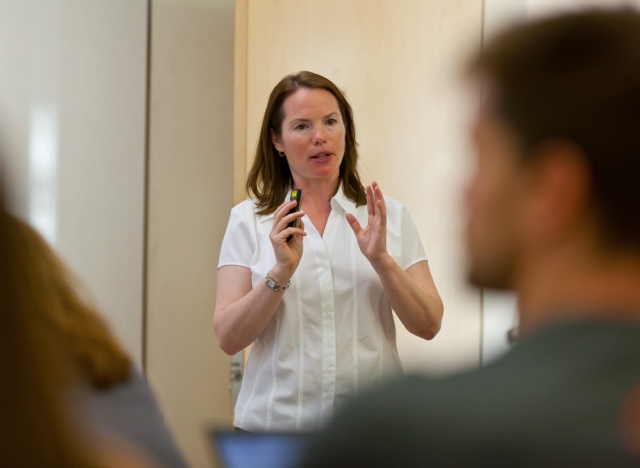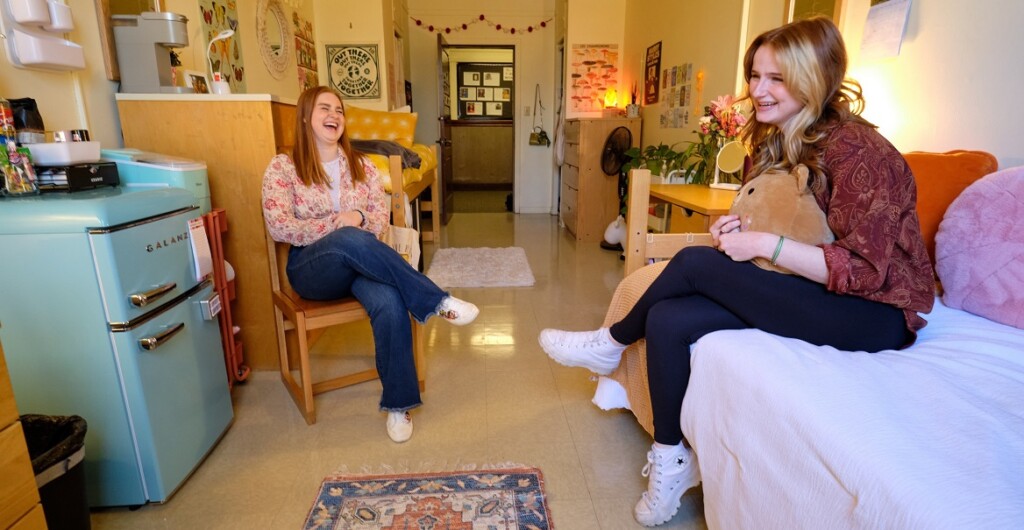Page 25 • (699 results in 0.057 seconds)
-
manipulation, stacking, and un-stacking Pedestrian traffic in areas where the vehicle will be operated Narrow aisles and other restricted places where the vehicle will be operated Hazardous (classified) locations where the vehicle will be operated Ramps and other sloped surfaces that could affect the vehicle’s stability Closed environments and other areas where insufficient ventilation or poor vehicle maintenance could cause a buildup of carbon monoxide or diesel exhaust Other unique or potentially
-
academic unit. (1 to 4) ANTH 480 : Anthropological Inquiry Historic and thematic study of the theoretical foundations of anthropology: research methods; how theory and methods are used to establish anthropological knowledge. Required of majors in their junior or senior year. Prerequisite: at least two 300-level anthropology courses or consent of instructor. (4) ANTH 487 : Special Topics in Anthropology To provide undergraduate students with new, one-time, and developing courses not yet available in the
-
those students enrolled in nursing courses, per the Essential Qualifications of Nursing Students Preparing for Professional Nursing Practice. A student’s inability to fulfill program requirements, due in part or in whole to physical and/or psychological limitations, may affect the student’s grade in a nursing course or courses. Such grades do not necessarily imply discrimination and/or harassment on the part of the faculty member assigning such grades.
-

slide of the little fellers that sits on her desk in Morken. But enough of that. For the most part, Billharz will stress to you and to her nursing classes she taught this summer, microbes are good.“I guess you could call me the ambassador or prophet for microbes,” she laughed. “You can’t open a newspaper or magazine without coming across some story of their affect on human beings.” And most of the time, the effect is good, not bad. She starts out her classes by making students list all the good and
-

hours of college credit on their academic record. This “Residency Rule” will most often affect first-year students who would be joining us directly out of high school or running start. Students who are younger than twenty and won’t be waiving the requirement with transfer credits or have children to care for, may choose to live at home with their parents or spouse by filling out the Confirmation of Living at Home form that is available on our Residence Life homepage. Students who want to live with
-
will result in the issuance of a minor Performance Progression Alert that may result in failure of the clinical rotation. Any students found to have falsified clinical hours will receive a major Performance Progress Alert (PPA), failure of the clinical rotation, and face dismissal from the School of Nursing program. PLU does not separate excused/unexcused absences. Regardless of the reason, missed clinical hours may affect the student’s grade and their ability to fulfill clinical requirements for
-
, and electrical & computer engineering. Students can choose to work on the theory that drives the development of new photonic materials that will enable quantum computing. Other labs work on integrating these new materials into devices at both the nano- and macro-scale. Program Dates: Vary by location (UW Program: June 20 – August 19, 2022; a ten-week program between May 30 – August 2022 at other sites) Application Open: December 17, 2021 Application Deadline: February 7, 2022 Stipend: $6,000 (or
-
UO Masters’ Internship program in Electrochemistry Posted by: nicolacs / November 18, 2021 November 18, 2021 The Oregon Center for Electrochemistry’s masters-level internship program attracts chemistry, physics, biology, and engineering students and provide nationally unique training including rigorous foundational electrochemical theory, team- and inquiry-based laboratory work, numerical simulation and engineering of electrochemical systems, and experience tackling industry-sponsored, team
-
Finance What is Finance? At its fundamental level, Finance involves the interrelationships among time, value, risk, and how decisions are made concerning resource allocation. Finance focuses on these decisions both at the firm (corporate finance) and individual (investments) levels while combining and extending theory and tools from Accounting, Economics, and Math into the practice of financial decision making. What can I do with Finance? Workers in financial occupations are highly coveted in
-
of K-12 educational leadership: ethics and social justice, inquiry, policy, and leadership development. Demonstrate competency in National Educational Leadership Program Standards (NELP District Standards). Prepare and present written work to both academic and practitioner audiences. Understand, evaluate, and apply educational theory and inquiry knowledge and skills to problems of policy and practice of educational leadership. Design, conduct, report, and present clear and coherent research
Do you have any feedback for us? If so, feel free to use our Feedback Form.


